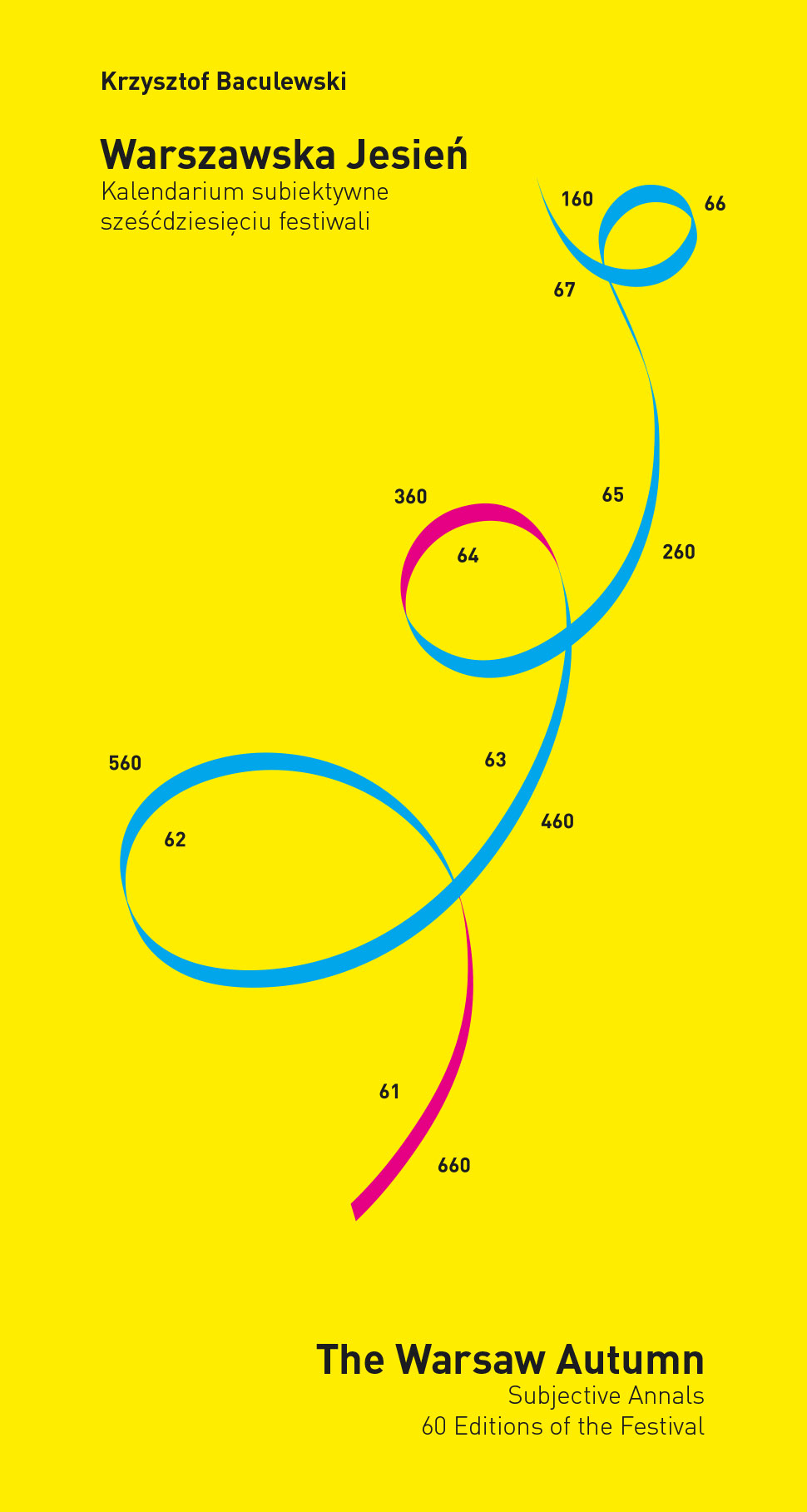
Krzysztof Baculewski "Subjective Annals 60 Editions of the Festival"
The first 'Warsaw Autumn' did not yet use that name. In the programme book, it was officially called the First International Festival of Contemporary Music.
The Festival lasted 11 days, from 10th to 21st October. Almost symbolically, it inaugurated a new stage in the history of Polish music: on the last day of the Festival, the 8th Plenary Session of the Central Committee of the Polish United Workers' Party, which had been deliberating for 3 days, elected a new Party Secretary, Władysław Gomułka. The expectations that the Polish society had in connection with this choice turned out to be vain hopes, and the 'thaw' was a brief one. However, the period of normative aesthetics, of socialist realism, traces of which continued to appear in the programmes of the 'Warsaw Autumn', definitely came to an end, at least as far as new Polish music was concerned.
The first 'Warsaw Autumn' did not have the distinctly avant-garde pro le that it acquired later. It was making up for the lost time of cultural isolation. For propaganda purposes, it forged a slogan about confrontation between the music of 'peoples' democracies' and that of the West. It was a convenient formula, which provided justification for the presence in the programme of 'bourgeois' music, which had until recently been banned in Poland. This made the 'Warsaw Autumn' particularly attractive for visitors from the USSR and other socialist countries, for whom this was the only opportunity for contact with music and musicians from the West.
The first work ever to be performed at the 'Warsaw Autumn' was Les Offrandes oubliées by Olivier Messiaen (I am not sure whether it was played in full), presented under the title Fragment symphonique, in order to fool the censor. The Warsaw Philharmonic Orchestra was led by Bohdan Wodiczko, who conducted the Orchestra from the start of its first season in the new venue (the Warsaw Philharmonic Hall: originally constructed in 1901, bombed in 1939, reduced to rubble toward the end of the war). He was the author of courageous and well-thought-out concert programmes, which presented music considered as harmful by theorists of socialist realism. Apart from Messiaen, the programme comprised Karol Szymanowski's Stabat Mater and Dmitri Shostakovich's Symphony No. 10. The Warsaw Philharmonic Choir rehearsed the programme with Roman Kuklewicz, and the soloists were prominent Polish singers: Maria Kunińska (soprano), Krystyna Szczepańska (alto), and Andrzej Hiolski (baritone). On the performance side, that first 'Warsaw Autumn' concert also made history as far as Polish music is concerned; but not only the first concert was of historical importance, and not only the Polish musicians. Some of the greatest conductors took part in the 1st Festival: Jean Martinon, Michael Gielen, Mircea Besarab, Jan Krenz, Witold Rowicki, Karol Stryja, Stanisław Wisłocki, Stanisław Skrowaczewski; violinists: David Oystrakh, Tadeusz Wroński, Irena Dubiska and Eugenia Umińska; pianists: Alfred Brendel and Władysław Kędra; Stefania Woytowicz also made an appearance.
The repertoire was dominated by - as we would say today - 20th-century classics, such as Igor Stravinsky, Béla Bartók, Arnold Schoenberg, Arthur Honegger, but every concert also included a Polish piece, by Bolesław Woytowicz, Grażyna Bacewicz, Michał Spisak, Tadeusz Baird, Artur Malawski, Stefan Kisielewski or Witold Lutosławski.
Symphonic concerts dominated the 1956 'Warsaw Autumn' programme (17 out of 20), which never happened again in history. Nine orchestras took part; apart from Warsaw Philharmonic there were the Wiener Philharmoniker, the Parisian ORTF, the State Orchestra of the USSR from Moscow, philharmonic orchestras from Brno and Bucharest, the Great Symphony Orchestra of Polish Radio (WOSPR), Silesian Philharmonic, and the Kraków Radio Orchestra. ere were also three chamber music concerts, including two performances of string quartets: by Vilmos Tatrai from Budapest and Jacques Parrenin from Paris. A curious feature of the programme were the 'concessions' to the performers - it is not hard to guess which ones - in the form of Symphony No. 4 in E minor, Op. 98 by Johannes Brahms and Symphony No. 5 in E Minor, Op. 64 by Pyotr Tchaikovsky. For balance, we also ought to note the first Polish performance of e Rite of Spring by Igor Stravinsky -a work which was, after all, 43 years old at that time...
An important complement to the Festival were the 'Sound Chronicles', until 1989 released promptly on LPs by 'Polskie Nagrania' [Polish Recordings state record company], and often released while the event was still in progress. Originally they contained excerpts from the most important events of the 'Warsaw Autumn', in later years - the Polish compositions, in full whenever possible. In the years 1990-99 the publication of the chronicles (on compact cassettes) was taken over by the Polish Composers' Union, which since 1999 has released them on promotional CDs (not for sale). Occasionally the organisers also managed to obtain permission for the release of selected Festival works by foreign composers.